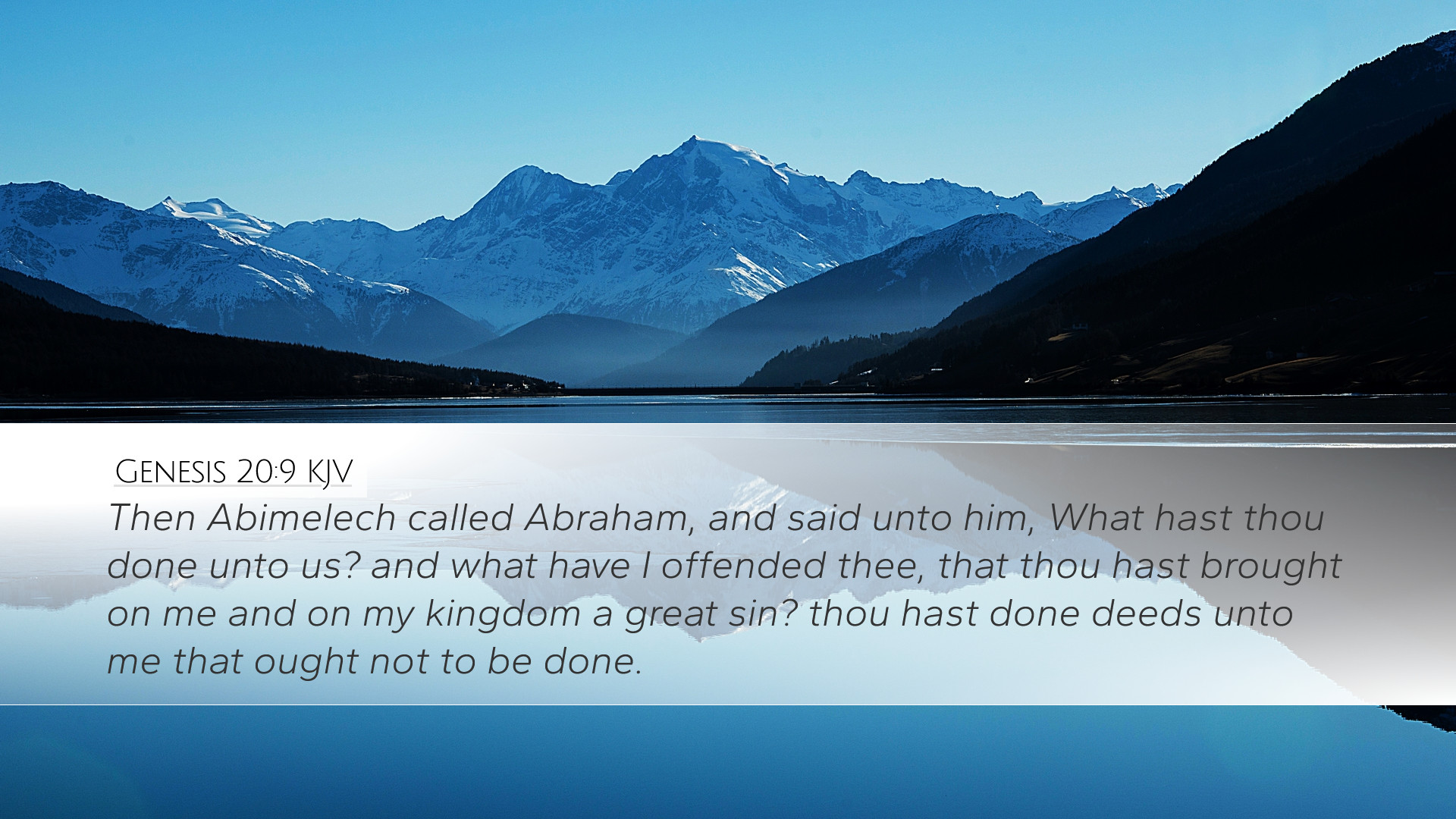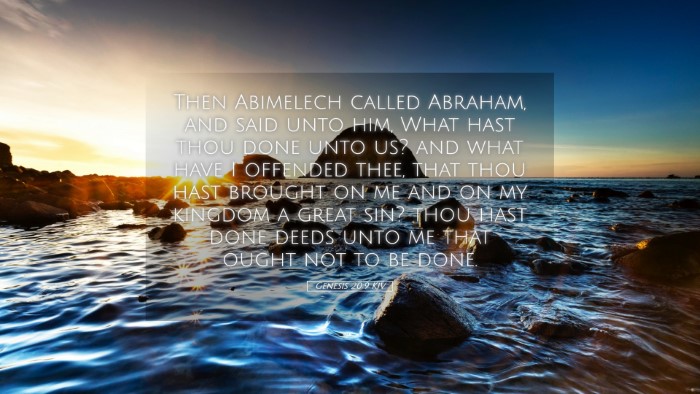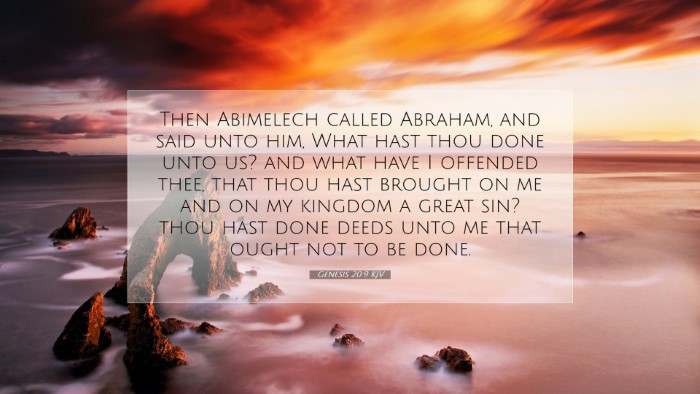Commentary on Genesis 20:9
Verse: "Then Abimelech called Abraham, and said unto him, What hast thou done unto us? and what have I offended thee, that thou hast brought on me and on my kingdom a great sin? thou hast done deeds unto me that ought not to be done."
Introduction
Genesis 20:9 presents a pivotal moment in the narrative of Abraham's journey where the consequences of deception come to the forefront. This verse captures Abimelech's confrontational inquiry into Abraham's actions that led to significant turmoil. By exploring insights from esteemed commentators such as Matthew Henry, Albert Barnes, and Adam Clarke, we can extract rich theological, ethical, and contextual dimensions from this passage.
Contextual Analysis
This verse is situated within the account of Abraham's sojourn in Gerar, where he represents Sarah as his sister, evoking a series of ethical complexities. Abimelech, the king of Gerar, unknowingly takes Sarah into his harem, believing her to be unmarried due to Abraham’s deception. The implications of this act and its moral undertones are explored in the commentaries:
- Matthew Henry: Highlights the moral lessons learned through Abraham's duplicity, noting that even the faithful can falter in faith and resort to lies out of fear.
- Albert Barnes: Emphasizes the gravity of the situation, indicating that Abraham's fear led to a significant breach of trust that not only affected him but jeopardized Abimelech and his kingdom.
- Adam Clarke: Points out that Abimelech's actions, albeit unintentional, showcase the possibility of divine judgment that could arise from human misunderstanding and wrongful assumptions.
Theological Implications
The encounter portrayed in Genesis 20:9 reveals deep theological truths about the nature of sin, accountability, and divine intervention.
- Sin and its Consequences: Abimelech's outcry emphasizes the ripple effect of one's sin on others. Abraham's actions, though born of fear, brought about unintended consequences that led to moral implications for all involved.
- Divine Sovereignty: The narrative underscores God's control over events, as He intervenes to protect Sarah and reveal the truth to Abimelech, illustrating His commitment to His covenant and the preservation of the line leading to the Messiah.
- Human Accountability: Abimelech's question to Abraham brings to light the responsibility of believers to conduct themselves with integrity. Pastors and theologians can draw parallels between this account and the call for the church to maintain a witness that honors God in a world rife with deception.
Ethical Considerations
From an ethical standpoint, the passage raises critical questions regarding truthfulness and the moral obligation to uphold one’s integrity:
- Integrity in Leadership: Abimelech, as a ruler, represents the idea of just governance and the expectation that leaders act with integrity. His admonition towards Abraham highlights the need for leaders to model truthfulness, reinforcing that ethical conduct is paramount in all relations.
- Impact of Fear on Decision-Making: Abraham's fear resulted in a protective misrepresentation that endangered others. This teaches that fear-driven decisions often lead to errant outcomes, underscoring the need for reliance on faith and divine guidance.
- Restoration through Confession: The exchange prompts a reflection on the significance of recognizing wrongdoing and seeking reconciliation. In pastoral settings, the process of confession and the restoration of relationships are vital themes for ongoing ministry.
Conclusion
Genesis 20:9 serves not only as a historical account but also a profound lesson on the nature of sin, the intricacies of human relationships, and the faithfulness of God's provision in times of crisis. The insights gathered from Matthew Henry, Albert Barnes, and Adam Clarke collectively remind theologians and pastors alike of the importance of integrity, accountability, and reliance on God's sovereignty amidst human folly.
As we reflect on this passage, let us carry forth the wisdom gleaned—nurturing a commitment to truthfulness in our lives and communities while embracing God's grace which allows for restoration and renewal, even in the wake of our shortcomings.


